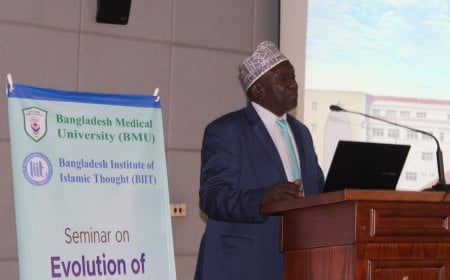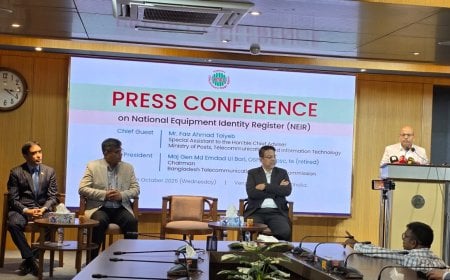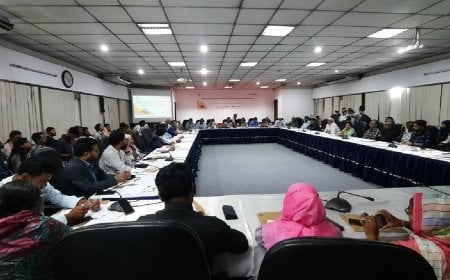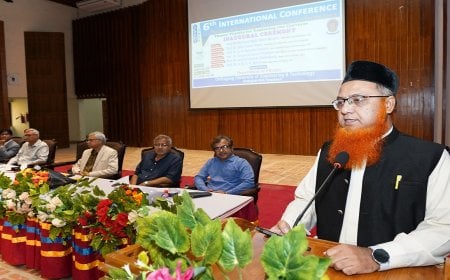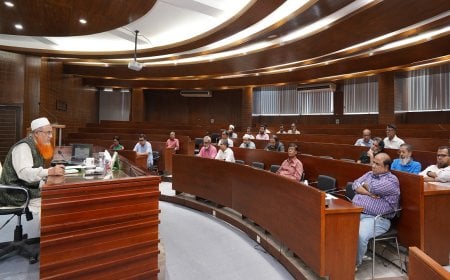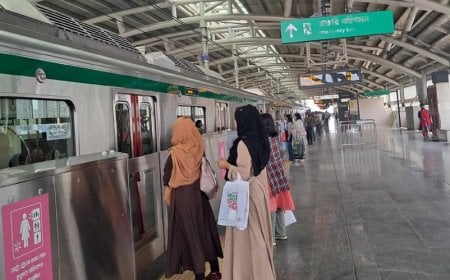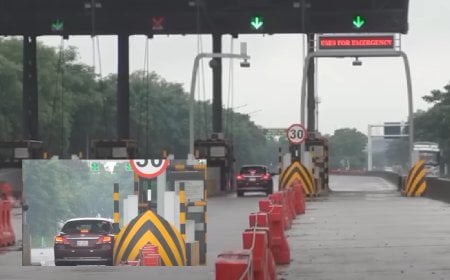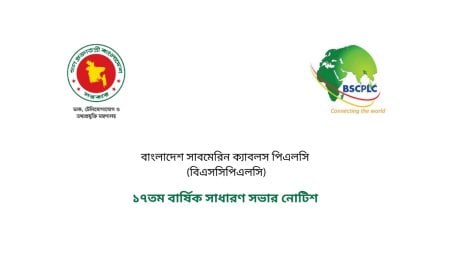Postal Policy Overhaul: Bangladesh Set to Modernize Mail with the Postal Services Ordinance 2025

Bangladesh is set for a historic transformation in its postal system as the government moves to update and revise the Bangladesh Post Act. The upcoming Postal Services Ordinance 2025 will replace the colonial-era Post Office Act 1898, ushering in a new era of digital integration, modern address management, data protection, and institutional empowerment within the national postal framework.
Faiz Ahmad Taiyeb, Special Assistant to the Chief Adviser on Posts, Telecommunications, and ICT Affairs, expressed optimism that the new ordinance will mark “a milestone in modern postal governance, digital transformation, and citizen-centric service delivery.” He shared key highlights of the proposed reforms on his social media, emphasizing the ordinance’s focus on modernization, accountability, and inclusivity.
According to him, “The Bangladesh Post Act is being revised to strengthen digital transformation, modern address management, climate-resilient migration tracking, personal data protection, and institutional capacity. The new Postal Services Ordinance 2025 will replace the old Post Office Act 1898 with a fully restructured legal framework.”
He explained that among the proposed changes are “several groundbreaking reforms,” including the creation of a dedicated Regulatory Wing, the introduction of digital postage, enhanced data protection, and postal life insurance reforms. The ordinance will also declare postal services an emergency service and integrate digital address archiving for all citizens.
Eight Landmark Reforms Under the Postal Services Ordinance 2025
1. Modern Regulatory Framework
A Regulation Wing will be formally established under the Bangladesh Post, headed by an Additional Director General. This body will license, regulate, and monitor all commercial postal and courier operators to ensure fair competition and non-discrimination.
Postal authorities will be required to maintain separate accounts for universal service subsidies, preventing cross-subsidization in competitive services.
Operating without a valid license will incur administrative fines of up to Tk 1 million, up from the previous Tk 200,000 limit.
2. Digital Transformation and Data Protection
The ordinance introduces digital postage or e-stamping alongside traditional stamps. Customers will be able to make online payments and receive secure QR or barcodes recognized as legally valid postage.
All personal data handling will comply with the Personal Data Protection Ordinance 2025. Operators must use customer data only for service purposes, destroy unnecessary information, and employ technical safeguards such as encryption to prevent cyber breaches.
A Digital Central Logistics Tracking Platform will ensure interoperability among operators, enabling customers to track parcels easily.
3. Enhanced Institutional Authority of Bangladesh Post
Postal services operated by the designated authority will be declared an emergency service, essential for national security, public health, and economic stability. During national crises, postal vehicles and staff will enjoy priority movement privileges.
The Bangladesh Post network will be recognized as a national infrastructure backbone—a vital component of communication and financial connectivity.
Government agencies at all levels will be required to prioritize the use of official postal services for correspondence and document transmission.
A Chief Controller of Stamps office will be established to manage all postal and non-postal stamp operations under Bangladesh Post.
4. Security, International Standards, and Border Control
All cross-border mail, courier, and parcel shipments must include Electronic Advance Data (EAD) for customs and security clearance.
Know Your Customer (KYC) verification will be mandatory for senders and receivers, particularly for international or high-value consignments.
Postal operators must implement proactive security measures, including regular staff training, mail scanning, and emergency contingency planning.
5. Postal Life Insurance (PLI)
Postal Life Insurance will gain formal recognition as a designated postal service.
Policies will carry sovereign guarantees equivalent to those made on behalf of the President of Bangladesh, making it one of the most secure savings instruments in the country.
A Postal Insurance Fund will be established on a “no profit, no loss” basis, administered by the Director General of Bangladesh Post as trustee.
Policyholders may access loans up to 90% of their policy’s surrender value.
6. Postal Savings Bank Modernization
The Postal Savings Bank will also become a designated postal service.
All savings will be consolidated into a Treasury Single Account (TSA) within the state exchequer.
Deposits may be invested in treasury bonds or instruments, with profit rates derived from investment returns.
The Bangladesh Post will retain authority to digitize and modernize all financial service operations.
7. Postal Ballot for Expatriate Voters
Under the Representation of the People (Amendment) Act 2023, the transportation of postal ballots for elections, as well as exam papers and results of public institutions, must be prioritized through the designated postal operator.
8. Address Archiving and Climate Resilience
Addresses of individuals and families will be digitally archived with geo-fencing and family-tree mapping features.
A life-cycle management system will preserve address histories and allow reallocation of addresses lost to climate events, river erosion, or land reclamation.
Faiz Ahmad Taiyeb noted that postal services will henceforth be treated as essential national infrastructure, reinforcing their role as the “spine of communication and commerce.” He added that the ordinance aims to make postal services climate-resilient, digitally traceable, and globally competitive — ensuring “Bangladesh Post evolves into a smart, secure, and citizen-oriented public institution.”






























